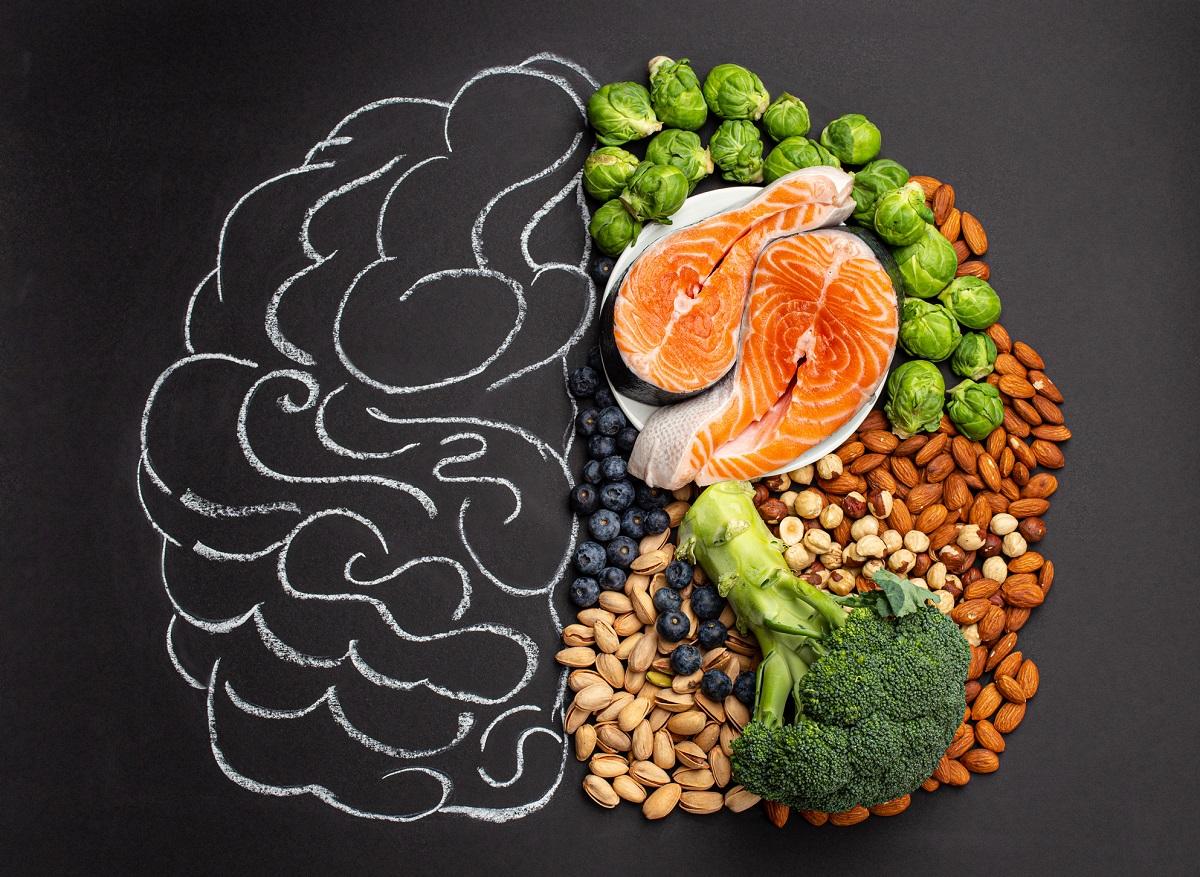Learn how nutrients influence neurotransmitters, foods that benefit the mind, the link between eating disorders and psychiatric conditions, and the importance of nutrition in preventing and treating depressive and anxiety disorders.

- Nutrients and neurotransmitters: A balanced diet promotes the production of serotonin and dopamine, thereby improving mood.
- Beneficial foods: Fruits, vegetables and omega-3s are crucial for mental health.
- Prevention and treatment: A good diet can prevent and treat depressive and anxiety disorders.
Neurotransmitters, such as serotonin and dopamine, are essential for regulating mood and emotions. Serotonin, often called the “happy hormone,” is produced from tryptophan, an amino acid found in foods such as turkey, nuts, and seeds. Dopamine, which plays a role in pleasure and motivation, is derived from tyrosine, which is found in foods such as bananas, avocados, and dairy. A balanced diet rich in nutrients can support the production of these neurotransmitters, improving mood and mental health.
Foods that benefit mental health
Fruits, vegetables and omega-3
Fruits and vegetables are rich in vitamins, minerals, and antioxidants that protect the brain from oxidative stress. Leafy greens, such as spinach and kale, are particularly beneficial because of their high levels of folate, a nutrient associated with reduced depressive symptoms. Omega-3 fatty acids, found in fatty fish like salmon, walnuts, and flaxseeds, are essential for brain health. They reduce inflammation and have been linked to a reduced risk of depression and anxiety.
Foods to avoid
It’s also important to limit foods that can be detrimental to mental health. Ultra-processed foods, which are high in added sugars and saturated fats, can cause inflammation and hormonal imbalances, worsening symptoms of mental health conditions. Reducing your intake of these foods and opting for healthier alternatives can have a significant positive impact on mental health.
Link between eating disorders and psychiatric disorders
Connections between disorders
There is a strong link between eating disorders and psychiatric disorders. People with eating disorders, such as anorexia, bulimia, and compulsive eating disorder, often have symptoms of depression, anxiety, and obsessive-compulsive disorder. Poor nutrition can exacerbate these symptoms, creating a vicious cycle. An integrative approach that combines nutrition and psychiatric treatment is essential to help patients recover.
Health professionals recommend a comprehensive approach to treating these disorders, integrating nutritional therapy with psychological interventions. Patients are taught not only how to eat a balanced diet but also how to develop strategies to manage stress and negative emotions related to their eating disorders.

Role of diet in the prevention and treatment of depressive and anxiety disorders
Prevention of mental disorders
A diet rich in essential nutrients can play a key role in preventing mental health disorders. For example, studies show that Mediterranean diets, which are rich in fruits, vegetables, whole grains, and fish, are associated with a reduced risk of depression. Additionally, certain nutrients, such as vitamins B and D, magnesium, and zinc, are crucial for optimal brain function and may prevent the onset of depressive and anxiety disorders.
Treatment of mental disorders
In the treatment of depressive and anxiety disorders, a balanced diet can complement traditional therapies such as medication and cognitive behavioral therapy. Nutritional interventions may include specific supplements or dietary modifications aimed at improving the intake of essential nutrients. This comprehensive approach helps treat the underlying cause of mental disorders, rather than simply alleviating symptoms.
Diet plays a vital role in mental health. By understanding the impact of nutrients on neurotransmitters, choosing beneficial foods, and avoiding harmful foods, we can effectively prevent and treat mental disorders. Eating a balanced diet is a powerful strategy for improving our mental and physical well-being.
Tips for mentally healthy eating:
- Eat a variety of foods: Include a variety of fruits, vegetables, whole grains and proteins in your diet.
- Focus on omega-3: regularly eat oily fish, nuts and flax seeds.
- Avoid ultra-processed foods: Limit added sugars and saturated fats to reduce inflammation and oxidative stress.















